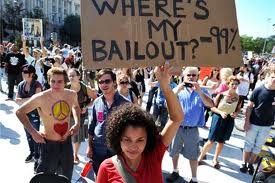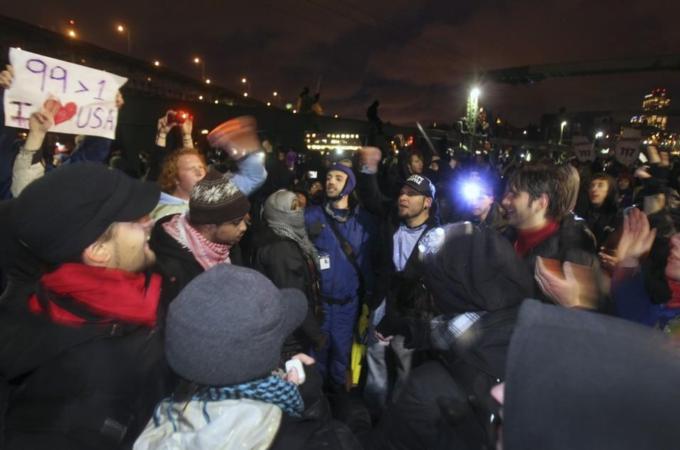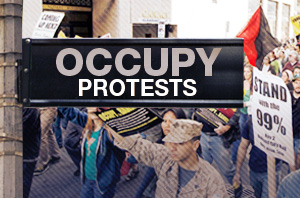
Press TV
In today's tour of state-sponsored propaganda: the 99 percent conspire to overthrow the U.S., Cuba's Hollywood hero Benicio del Toro slams America, and PBS stars in an Al Qaeda propaganda film.
Occupy Goes to War
Think Occupy Wall Street is a peaceful protest movement? Clearly you're not reading Press TV, Iran's state-owned news outlet. In a bout of wishful thinking, the outlet says today Occupy protesters are conspiring to wage a civil war in the United States.
The people in the United States will eventually launch a civil war against the minority capitalist cartels who are making enormous profits at the cost of the people’s sufferings, a political analyst tells Press TV.
Amazing scoop, right? Let's see how this "analyst" explains this development:
“Ultimately, people in the US are turning these international wars of aggression around and they are turning them into a civil war against the one percent that profits it as human suffering goes on,” said Caleb Maupin, with the International Action Center from New York, in a Wednesday interview with Press TV.
Hmmm. Unfortunately for Maupin (and Iran), he doesn't have any evidence of an actual OWS plot to take up arms. It's just aspirational talk. And strange aspirational talk, for that matter, considering that Maupin works for an anti-war group founded by former US Attorney General Rasmey Clark. If you'd like to debate this issue further, Maupin's Twitter page can be found here.
Benicio Speaks the Truth

Actor Benicio del Toro of Traffic, The Usual Suspects, and other great films has made a friend in the Cuban News Agency. The country's state-run outlet is propping up criticisms he raised in Cannes last week about restrictions on US citizens travelling to Cuba:
Del Toro told the press that the US ban on traveling to Cuba is a kind of censorship, and that in order to travel to the Caribbean island you have to ask for a special permission from the U.S. government, pay a large amount of money, and then wait for several months to obtain the approval.
It's a little suspicious that del Toro isn't quoted in the article but not at all surprising that he might complain about the red tape involved in traveling to Cuba. After all, he is making his directorial debut with Seven Days in Cuba, a film about a young American tourist's adventures in Havana. One would imagine those travel restrictions would make producing a movie there a nightmare.
Frontline Plays a Starring Role in an al Qaeda Propaganda Film
Following Frontline's blockbuster documentary on al Qaeda in Yemen this week, the network has an interesting follow-up story on al Qaeda's sophisticated PR machine. One of the breathtaking scenes of the documentary features Gaith Abdul-Ahad observing prisoner's captured by the Al Qaeda affiliated group Ansar al-Sharia. When Abdul-Ahad was visiting the prisoners, a member of Ansar al-Shari was videotaping everything. Weirdly enough, weeks later, Frontline's reporter showed up in a propaganda film by the Madad News Agency, Ansar al-Sharia's media wing. "It’s the perfect example of just how media-savvy Ansar al-Sharia has become over the last year," writes Frontline's digital producer Azmat Khan. You can see the video below:
Want to add to this story? Let us know in comments or send an email to the author atjhudson@theatlantic.com. You can share ideas for stories on the Open Wire.
John Hudson
John Hudson













